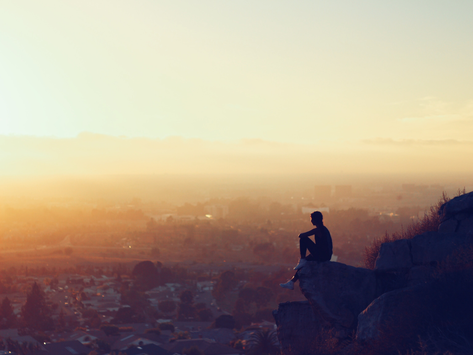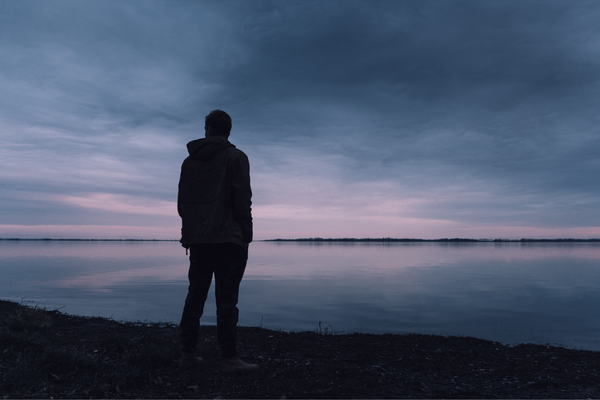|
Two blind men waited at the end of an era, contemplating beauty. They sat atop the world’s highest cliff, overlooking the land and seeing nothing. “Can beauty be taken from a man?” the first asked the second. “It was taken from me,” the second replied. “For I cannot remember it.” This man was blinded in a childhood accident. “I pray to the God Beyond each night to restore my sight, so that I may find beauty again.” “Is beauty something one must see, then?” the first asked. —Brandon Sanderson, Words of Radiance A story in a story, but an interesting question, nonetheless. The story continues with the two men debating beauty by examining all the different senses and how beauty can be felt by each one. To hear music, to feel a sculpture’s curves and slopes, the taste and smell of a chef’s masterpiece, or the intellect of mind and philosophy.
“Very well,” said the second, “But what if your ears were removed, your hearing taken away? Your tongue taken out, your mouth forced shut, your sense of smell destroyed? What if your skin were burned so that you could no longer feel? What if all that remained to you was pain?” Mental health struggles can feel much like the question proposed in this fictional story. What if all that we felt—in one sense or another—were taken from us, leaving us only with pain? In this supposed situation, has beauty been taken from us? It sure feels that way when battling depression, loss, job burnout, frequent relationship disconnection, and other mental health struggles. It’s the feeling of not feeling, a consuming emptiness that steals away your joy. Can beauty—meaning in your life—be found when all you feel is pain? The short answer is yes, there is still beauty for you to experience in life no matter what hardships you’ve gone through. The long answer is that beauty is not something that can be given to you. It would seem nice if it could, just like going to the mall and picking up an item we deem valuable. But the beauty I refer to is something that transcends monetary or temporal things. It transcends even our senses of touch, taste, sound, sight, and smell. This is called the small self. A study in 2015 had students look up 200-feet tall eucalyptus trees for one minute. After, students reported feeling less self-centered and behaved more generously when given the chance to help someone. In this small self state we also have higher levels of oxytocin (the bonding hormone). When bonding—or connecting—in the small self, you experience something bigger than yourself. You might feel it when you worship at your church or mosque, when you do something creative, or engaging with someone else’s creativity through music and art. For holocaust survivor Victor Frankl, it came through choosing one’s own attitude, to choose one’s own way evidenced as he saw men in concentration camps comforting others and giving away their last piece of bread. For me, it came as I stood outside one winter evening and watched, through the front window, my wife reunite with our three girls after a traumatic surgery and loss of our fourth miscarriage. I could not help but pause for a moment and take in the scene. I remember the snow falling, the feeling of cold air, and the reflections of Christmas lights as I stood there with two car seats in my hand. After an experience that stole my beauty, that left with me pain, I felt in that moment a connection to something greater than myself. The pain didn’t go away, but it did lessen. And overtime, taught me many more beautiful truths. Can beauty—meaning in your life—be found when all you feel is pain? I think beauty is more than just when the pain lessens. But when the pain itself is transformed because it has meaning. As Victor Frankl said, “If there is meaning in life at all, then there must be meaning in suffering.”
3 Comments
|
Lee AtwoodLee Atwood is a psychologist and manages his private practice, Relevare Counselling, in Calgary, AB. He offers in-person and online services for mental health issues such as: sex/porn addiction, couples counselling, job burnout, stress reduction, parenting, religious trauma, men’s issues, and helping people on their journey of recovery and healing.
Archives
January 2023
|



 RSS Feed
RSS Feed